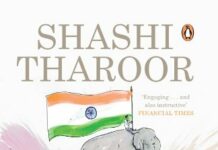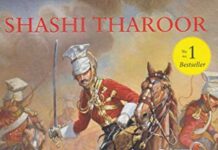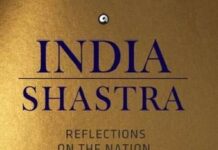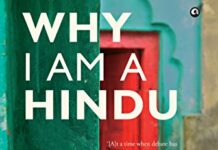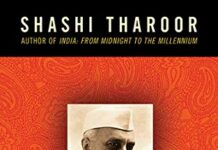
Ebook Info
- Published: 2017
- Number of pages: 288 pages
- Format: PDF
- File Size: 1.22 MB
- Authors: Shashi Tharoor
Description
In the eighteenth century, India’s share of the world economy was as large as Europe’s. By 1947, it had decreased six-fold. In Inglorious Empire, Shashi Tharoor tells the real story of the British in India, from the arrival of the East India Company in 1757 to the end of the Raj, and revealshow Britain’s rise was built upon its depredations in India. India was Britain’s biggest cash cow, and Indians literally paid for their own oppression. Britain’s Industrial Revolution was founded on India’s deindustrialisation, and the destruction of its textile industry. Under the British, millionsdied from starvation–including 4 million in 1943 alone, after national hero Churchill diverted Bengal’s food stocks to the war effort. Beyond conquest and deception, the Empire blew rebels from cannons, massacred unarmed protesters and entrenched institutionalised racism. British imperialismjustified itself as enlightened despotism for the benefit of the governed. Tharoor takes on and demolishes the arguments for the Empire, demonstrating how every supposed imperial ‘gift’, from the railways to the rule of law, was designed in Britain’s interests alone. This incisive reassessment ofcolonialism exposes to devastating effect the inglorious reality of Britain’s stained Indian legacy.
User’s Reviews
Editorial Reviews: Review “Ferocious and astonishing. Essential for a Britain lost in sepia fantasies about its past, Inglorious Empire is history at its clearest and cutting best.”–Ben Judah, author of This is London “Rare indeed is it to come across history that is so readable and so persuasive.”– Amitav Ghosh “Brilliant EL A searing indictment of the Raj and its impact on India. EL Required reading for all Anglophiles in former British colonies, and needs to be a textbook in Britain.”– Salil Tripathi, Chair of the Writers in Prison Committee, PEN International, and author of The Colonel Who Would Not Repent About the Author Shashi Tharoor served for twenty-nine years at the UN, culminating as Under-Secretary General. He is a Congress MP in India, the author of fourteen previous books and has won numerous literary awards, including a Commonwealth Writers’ Writers’ Prize. Tharoor has a PhD from the Fletcher School andwas named by the World Economic Forum in Davos in 1998 as a Global Leader of Tomorrow.
Reviews from Amazon users which were colected at the time this book was published on the website:
⭐It debunks the myth that the British helped India or that they built transportation such as the railways to improve trade etc. while all this was done to help the British move their goods and the armies.
⭐This is an excellent polemic and intellectual critique of the British colonial looting of India. It describes in horrifying detail what colonialism really was: the exploitation of a land for the benefit of the colonizers at the expense of the colonized. The book discusses the many unfair impositions of the British on the Indians: the overt discriminatory racism, the taxation, the creation of import and export tariffs for the benefit of British manufacturers and traders, the forced deindustrialization or prevention of industrial development of the country, the famines, and the political subjugation of the country.I thought the book, though, paid insufficient attention to how the British were able to occupy a huge and populace country such as India. To a certain extent, I think it was a coincidence or combination of events that happened to occur at the same time. The Mogul dynasty and central government collapsed, and India was invaded by the Persians, just when the British East India Company and the French went to war all over the world, including in India. The author (Shashi Tharoor) also, I think, misjudges the significance and effects of the European Industrial Revolution and the superior European military performance at the time. By the mid- to late 18th century, a European army and navy could defeat a much larger Indian or Asian army or navy. The European colonization or seizure of Africa and Asia occurred because of a huge superiority in military and industrial technology. To this day, if one country possesses a military or technological – industrial advantage over another country, it will use it for it’s own benefit. The people of India, China, and Africa found this out.Another excellent book on this subject is “The Anarchy: The East India Company, Corporate Violence, and the Pillage of an Empire” by Dalrymple (2019).
⭐Shashi Tharoor became one of my favorite authors when I ‘discovered’ his novel, The Great Indian Novel, which is a clever, contemporary retelling of the Mahabharata by substituting the epic’s well-known characters with India’s political characters in the 1900s when Indian freedom fighters were trying to rid the country of the British.I trust Shashi Tharoor’s knowledge of imperialism, especially as it relates to India. At the time this book was written, there were not too many books out there critical of British imperialism. In ‘Inglorious Empire’ not only does Dr. Tharoor criticize the British empire, but also lay out the details of how the British essentially destroyed one of human history’s most advanced and prosperous societies.This book is written with knowledge and depth, but also in an engaging manner. I highly recommend it to anyone wishing to understand why most of the countries colonized by European imperialists became so impoverished in the past few centuries.
⭐My book was delivered on time and in an excellent condition
⭐The author covers nearly 200 years of continuously horrifying encounters between the conquering British and conquered Indians. I believe his expectations of fair play were set too high from the 15% brutal “bad” guys, who were indeed in charge – notwithstanding the brave kindness of the 3-5% “conscientious” ones. The other 80% simply rode the free, lucrative and long ride, just like their counterparts in Germany did during the short rise of the third Reich. The book would have earned 5 stars if there were more inspiring examples of individual and groups of Indians who overcame those institutionalized handicaps and thrived against all the odds. Instead of asking for apologies or reparations (good luck!), perhaps an India-based museum of colonial atrocities alongside successful examples of individual/group achievements should prove to be a lasting legacy against future amnesia. A possible location? Backyard of the Viceroy’s palace (now the Rashtrapati Bhavan).
⭐The book was very good. I knew that the British treated India poorly. I did not know the extend of the financial exploitation through taxes that went back to England not to build up India. I was also unaware how the destroyed a thriving Indian economy in textiles, steel, etc to create a market for British goods. Before occupation India had accounted for over 20% of world trade after less than 2%. India was not a backward country. The Brits showed it into a deep hole
⭐Well researched review of the British takeover of India, what they did to destroy the local economy, steal India’s wealth, enslave the natives and treat them like dogs for nearly 200 years and by doing so, how they created wealth for themselves as well as providing the loot to industrialize and develop England.A must read for every citizen of every country that was colonized by the British, Dutch or French, who has been manipulated into believing that these invaders helped their country
⭐A great account of the true history of the Bristish Raj. Tharoor’s coverage of India and England from the moment British East India landed to today is based on facts. His understandable pursuit of a symbolic acknowledgement by the Crown for their misdeeds drives his passion to write.A lot of social and economic data is discussed from all perspectives. It was a great read because it is not biased and does not seek to propagate any personal agendas. Tharoor’s goal is to find the best possible way to move away from the blame game.This book is one to pass on to future generations.
⭐Historians bemoan a lack a balance in books. They desire to be an emotionless onlooker give cold hard facts.Tharoor rips up the banal rule book and gives us a fantastic read. As an Irishman I can see the parallels of empire on every page. A common statement in Ireland is that if it weren’t for the nice English buildings we would have no nice buildings at all. They ruled the country for 800 years. An Irishman didn’t have the money to build a home, let alone a palace. Such are the parrallels in India. The British ripped up the age of disconnected village feudalism and brought something much worse the India. Collectivism. Collective poverty.Tharoor starts off with the most striking chapter. The looting of India. If you take anything from this book, it is this line “when the British arrived in India in the 1700s, India was 27 percent of the global economy. When they left in 1948 it was 3%”. People will state the world moved on without India but frankly India was chained to the floor. The British were not there to help. The trains, as Tharoor describes, and as is detailed further in the incredible book Empire of Cotton, were there to speed up the looting, the transfer of Cotton to the ships. The trains were also to be used mainly by the British people and furthermore by their Soldiers. The trains would quickly speed them to point of any mutiny.Tharoors gives details on Indian involvement in WW1 and WW2 where Indian soldiers accounted for up to one quarter of Commonwealth forces. Though not detailed in this book, Indian soldiers were often sent in first. At Gallipoli their bodies became human sandbags. Indeed in WW2, it was the British who declared war on Germany on India’s behalf without consulting the Indian hierarchy.Other shameful aspects of Empire in India are expanded upon. Murder (Amritsar and others) and famine. Of course the Bengal famine, not to mention the almost 100 million Indians who died from starvation during the course of British rule. Famines are not a natural phenomenon.The bibliography of the book is substantial enough (5 pages) to be awarded a credible work of history. No doubt Thatoor is guilty of a slightly one sided argument and choosing the facts in line with the mood of the book. But guess what, British history books for the last 300 years have done something similar so here is the balance historians are looking for.
⭐Some time ago, I read Niall Ferguson’s “Empire”, where he lays out the case that the British Empire was, by and large, A Good Thing, with just a few minor superficial blemishes. It reminded me a bit of “A Hymn to Him” in “My Fair Lady”:One man in a million may shout a bit.Now and then there’s one with slight defects;One, perhaps, whose truthfulness you doubt a bit.But by and large we are a marvellous sex!I reviewed it favourably, because I found its treatment very interesting and, yes, convincing. Now comes this devastating riposte to Prof. Ferguson’s thesis, from the point of view of India, the jewel in the Imperial crown. Shashi Tharoor’s point of view is essentially that the British arrived in an India that was basically more civilized, more advanced, better fed than the UK, and mercilessly looted it for the benefit of the UK and the detriment of India, destroying Indian industries to prevent them competing with British ones and doing the old universal imperial trick of acquiring cheap raw materials and sending them back as expensive manufactured goods. The only things the British did that were beneficial to India were done for their own benefit and profit; there never was any interest in advancing the cause of the locals. And, along the way, exacerbated the Hindu-Muslim differences as a part of a “divide and rule” strategy. In the end, the British simply ran out and left the Indians and what became the Pakistanis to it.Mr. Tharoor’s book is almost completely and negatively polemical, and I tend to be distrustful of prolonged polemics, which seem often to be attempts on the part of the writer to convince him/herself as much as convincing the reader. He confronts Prof. Ferguson’s claims of overall beneficence head-on and says they’re wrong. Are they? As with all such cases, unless one is prepared to review all the source documents and draw one’s own conclusions, it’s impossible definitively to say, and even then it might not be so clear. However, it seems to me that, polemicising nothwithstanding, Mr. Tharoor has the better of the argument. The British mentality has been thrown into relief by the recent Brexit business, in which the old British sense of superiority and deserving of special treatment because we’re such spiffing chaps has resurfaced. As Flanders and Swann had it:The English, the English, the English are best! I wouldn’t give tuppence for all of the rest!So, most definitely recommended to be read alongside the Ferguson book.
⭐As an educator in a previous life I would like to see this book made required reading in all British secondary schools. Why? Because it offers the perfect object-lesson in why it is always, yes always, wrong to march into another country under the pretence of a civilising mission. And, just as importantly, it shows why national myth-making leads unsuspecting citizens into very dangerous intellectual and emotional territory.Let’s start with the few quibbles that can be raised in order to discredit the value of this book. It verges occasionally, but only occasionally, on a quasi-rant against the evils of colonialism and the utter iniquities of British rule. It also slips into an emotional use of language, sometimes through unnecessary repetition, in its desire to make a point. The index is woefully inadequate, but it shares this failing with many another work of non-fiction.However, Tharoor has produced a meticulously researched book with thirty pages of notes and references in addition to footnotes (but don’t let that put you off) which comprehensively deals with the British involvement in India as well as many a backward glance to what the country was like before the British government decided it had to intervene in order to support the activities of the East India Company. In that year, 1600, England produced just 1.8 per cent of the world’s GDP in contrast to India’s 23 per cent. India had a flourishing manufacturing industry, especially in textiles, and one of its celebrated universities, Nalanda, had already predated the foundation of Oxford and Cambridge by centuries. When the British finally left, having systematically expropriated as much as they could, literacy rates and life expectancy rates were amongst the lowest in the Third World. Tea was grown solely for the satisfaction of consumers in Blighty, wild animals were slaughtered for the benefit of trophy-hunters, whole forests were cut down to provide railway sleepers and exotic furniture back home, the economy was turned into a largely agrarian base, taxes were extracted to finance colonial overlords and their staff while denying the native population any say in how they were governed. In modern times there has never been a famine in India; throughout British rule there were several.Even today there are British historians who continue to peddle the myths of the huge civilising influence the mother country exercised in the swathes of world territory it once ruled. Read Tharoor and you will be disabused of such fanciful notions. You will also be shocked to read how brutally and inhumanely the native Indian population was treated. It is one of the absurdities advanced by adherents to the Brexit cause that they imagine the Indians of today are falling over backwards to do all kinds of major trade deals with the erstwhile mother country. It betrays a total lack of historical understanding by such modern myth-makers that they indulge their fantasies of a Global Britain keen to resurrect the supposed glories of the past.Amongst the debunking of dangerous national myths is the historical evidence that Tharoor presents to show what an incorrigible racist Churchill was. I suspect that one reason why historians on the right have done all they can to discredit this book is because of the many uncomfortable instances of the great man’s bigotry and racial superiority. Equally unsettling is the history of British withdrawal in the wake of the Second World War. Divide and rule was always the British approach previously, but the fact that they largely stood back while Hindus and Moslems massacred each other while still retaining overall responsibility for the running of the country is an utterly shameful comment on the alleged superiority of the British civilising influence.Read this book in order to understand how shockingly and shamefully human beings behave towards others under their control and how national myths continue to be perpetuated despite all evidence to the contrary.
⭐all logic given in this book is based on some assumptions and they are all wrong -1) if the british didn’t colonise india, India would have remained independent, nobody else would have colonised it – its wrong. if not british, maybe the protugese, french, japanese or russia could have colonised india. that could have been far worse especially if japanese or russians came.2) india’s GDP share of the global market would have remained high always. it was only the british actions that reduced its dominance in the world market. even in the modern world the contributions from different countries towards the global markets are changing. look at how european contribution to the world has diminished compared to the chinese. these are cycles where europe was the past of the world, america is the present, china+india are the future and then it’ll be someone else. the wheel goes round and round.haven’t even finished reading the book. boring. just one moan after another. won’t recommend to anyone. it’ll satisfy some nationalist indians who like to blame everything on the british.
⭐Most people don’t know anything about what the British did in India and that includes most Indian people, certainly the first second and third generations living abroad. We have heard bits and pieces but this really puts so many things into perspective. It’s quite an informative, very easy to read and ultimately dismaying book that I recommend all Indian, all British and all Commonwealth peoples read.
Keywords
Free Download Inglorious Empire: What the British Did to India in PDF format
Inglorious Empire: What the British Did to India PDF Free Download
Download Inglorious Empire: What the British Did to India 2017 PDF Free
Inglorious Empire: What the British Did to India 2017 PDF Free Download
Download Inglorious Empire: What the British Did to India PDF
Free Download Ebook Inglorious Empire: What the British Did to India
